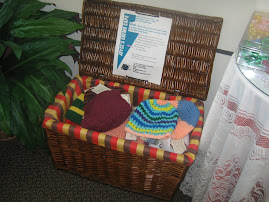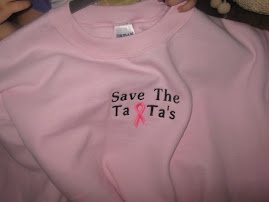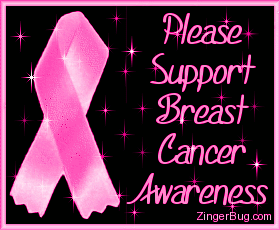For many work provides a sense of purpose and value and going back to work provides a sense of normalcy. Balancing your career and cancer diagnosis can be challenging. To help you gain understanding of your rights in the workplace and create solutions, YSC has partnered with Cancer and Careers. As part of this new partnership several FREE workshops have been planned across the country to bring experts on the subject of cancer and the workplace directly to you. If there's not a workshop scheduled in your community remember to utilize our (audio files and printed transcripts). Look under the Practically Speaking section to listen to related workshops.
A diagnosis of breast cancer is never easy to absorb, figuring out how to share this information with family and friends is difficult and emotional. Then comes the next challenge, returning to work, sharing this information with your employer, your co-workers, your clients and your friends in the workplace.
You are not under an obligation to tell everyone either at your current or potential place of employment. Who and how you inform your workplace of your diagnosis is a very personal decision. If you work for a larger company and your department has a Human Resources (HR) professional assigned to it, you may only need to tell that one person. If you have medical insurance/coverage through your employer you can opt to work with your HR professional to understand your coverage. Your HR professional can also help you to inform your manager or to make sure you are not penalized for taking time out of the work day for doctor's visits or treatments. Generally, both supervisors and co-workers will appreciate your openness and will be supportive of your situation. Yet, we encourage you to learn about your rights and protections. ADA (Americans with Disabilities Act) and the FMLA (Family and Medical Leave Act) give employees-at-will tremendous protection.
Protect Your Privacy - If you decide to share a minimum amount of information, consider sharing the following points with your HR Professional:
• Your diagnosis
• An explanation, in layman's terms, of what your diagnosis means
• Expected course of treatment
• Expected leave of absences or sick days, if any
It is hard to know the culture of each individual workplace, think about the following when deciding who to tell and what to tell them:
Are you working in a larger corporate environment where you are part of a smaller team? Do you work for a small organization where your co-workers feel like family? Is there a general sense of trust? Are you a member of a union or an at-will employee? These questions may help you make a plan for sharing information about your diagnosis, treatment and work needs.
Don't be Afraid to Ask for Help
This can be one of the hardest steps in the process of telling those you work with. We all strive to be our best in the workplace, to deliver top results and prove our value to our company/organization. Treatment can be taxing, and will most likely cause you to slow down, or have absences during the work day. Co-workers and managers can best help if they know what you need. If it is an extended deadline when possible, changing the time of a standing meeting or the opportunity to work from home the important thing to remember is to ASK. Asking for help does not mean that you are any less smart, competent or capable - just that you need to take care of yourself during and after this challenging time.
Showing posts with label info. Show all posts
Showing posts with label info. Show all posts
Tuesday, July 20, 2010
Sunday, September 13, 2009
Information About the Distribution of the Chemocaps
We've posted information showing our new members of Joyce's Chemo Caps when they join us. We also have the patterns for the caps, pictures of our 'happy cappers' on the blog and letters from the 'cappers'. We've never really explained the distribution of the caps and people have asked us how we do it.
This is how we collect and distribute the caps. There are some that drop off caps to us while we're sitting around the table at the Allen Senior Recreation Center. We have no requirement that they have to meet us there or even go to the center. Many are not seniors or do not live in Allen. We meet at the center but our project is not affiliated with them. We've received caps by mail. We have not even met some of the people that make the caps but give the caps to someone else to bring them to us. We've even received caps from other states such as California and other states too far to be delivered except by mail. Some of our group do not knit or crochet but help us by pinning our cards to the caps, rolling yarn, and sorting the caps to distribute.
We usually sort all of the caps we receive on Fridays. Because everyone has different ways and different patterns and makes the caps out of different yarns or colors, we want to divide the caps evenly so each cancer center gets a good variety of caps. Some of our group buys their own yarn but if they cannot, we furnish the yarn. Our only stipulation is that the yarn is soft and is not made of wool. This makes for a good variety of caps. Many of our caps are thin. This is good because in the beginning of our project, the purpose was for thin caps to be worn to sleep in. Joyce needed something to wear to bed. Thin caps are better for this purpose. Some are thicker, good for cold winter days or nights when the 'capper' goes to the doctor, shopping or just out of the house. We receive both crocheted caps and knitted caps. And, some caps even have buttons, ribbons, little hand made flowers and other little added touches to the caps.
We sort the caps according to different categories. We end up with a lot of stacks of different caps. Then we divide the them into individual stacks to go to the centers. We make sure that there are duplicates in each stack because there may be more than one person to want a particular cap. But we don't want all of the same cap to go to one center either. Variety is better.
Another reason we want the caps to be delivered to us is because we need to have a correct count of caps that we collect and deliver. It help us to know which cancer center is going to be needing caps. We also like to keep some caps on hand in case we receive a call from a new center. And we get calls from individuals so we like to keep caps on hand. It also helps us with the distribution of yarn.
We currently distribute 'Joyce's Chemo Caps" to the following centers:
Baylor- Plano
Dr. Kelly - Allen
Parkland - Dallas
Texas Oncology Center/Plano
Texas Oncology Center/ Allen
Gilda's Guild/ Allen
UTSW - Dallas
And friends who need our caps.
Coming soon are our new centers in September will be:
Baylor - Dallas
Presbyterian - Allen
We sent 50 caps to Woodward Cancer Center in Brighton, MI.
We would like to thank everyone who has donated caps to our project.
Our project has become a ministry.
In Joyce's Memory,
Vivian, Jan and Lena
This is how we collect and distribute the caps. There are some that drop off caps to us while we're sitting around the table at the Allen Senior Recreation Center. We have no requirement that they have to meet us there or even go to the center. Many are not seniors or do not live in Allen. We meet at the center but our project is not affiliated with them. We've received caps by mail. We have not even met some of the people that make the caps but give the caps to someone else to bring them to us. We've even received caps from other states such as California and other states too far to be delivered except by mail. Some of our group do not knit or crochet but help us by pinning our cards to the caps, rolling yarn, and sorting the caps to distribute.
We usually sort all of the caps we receive on Fridays. Because everyone has different ways and different patterns and makes the caps out of different yarns or colors, we want to divide the caps evenly so each cancer center gets a good variety of caps. Some of our group buys their own yarn but if they cannot, we furnish the yarn. Our only stipulation is that the yarn is soft and is not made of wool. This makes for a good variety of caps. Many of our caps are thin. This is good because in the beginning of our project, the purpose was for thin caps to be worn to sleep in. Joyce needed something to wear to bed. Thin caps are better for this purpose. Some are thicker, good for cold winter days or nights when the 'capper' goes to the doctor, shopping or just out of the house. We receive both crocheted caps and knitted caps. And, some caps even have buttons, ribbons, little hand made flowers and other little added touches to the caps.
We sort the caps according to different categories. We end up with a lot of stacks of different caps. Then we divide the them into individual stacks to go to the centers. We make sure that there are duplicates in each stack because there may be more than one person to want a particular cap. But we don't want all of the same cap to go to one center either. Variety is better.
Another reason we want the caps to be delivered to us is because we need to have a correct count of caps that we collect and deliver. It help us to know which cancer center is going to be needing caps. We also like to keep some caps on hand in case we receive a call from a new center. And we get calls from individuals so we like to keep caps on hand. It also helps us with the distribution of yarn.
We currently distribute 'Joyce's Chemo Caps" to the following centers:
Baylor- Plano
Dr. Kelly - Allen
Parkland - Dallas
Texas Oncology Center/Plano
Texas Oncology Center/ Allen
Gilda's Guild/ Allen
UTSW - Dallas
And friends who need our caps.
Coming soon are our new centers in September will be:
Baylor - Dallas
Presbyterian - Allen
We sent 50 caps to Woodward Cancer Center in Brighton, MI.
We would like to thank everyone who has donated caps to our project.
Our project has become a ministry.
In Joyce's Memory,
Vivian, Jan and Lena
Subscribe to:
Posts (Atom)










































